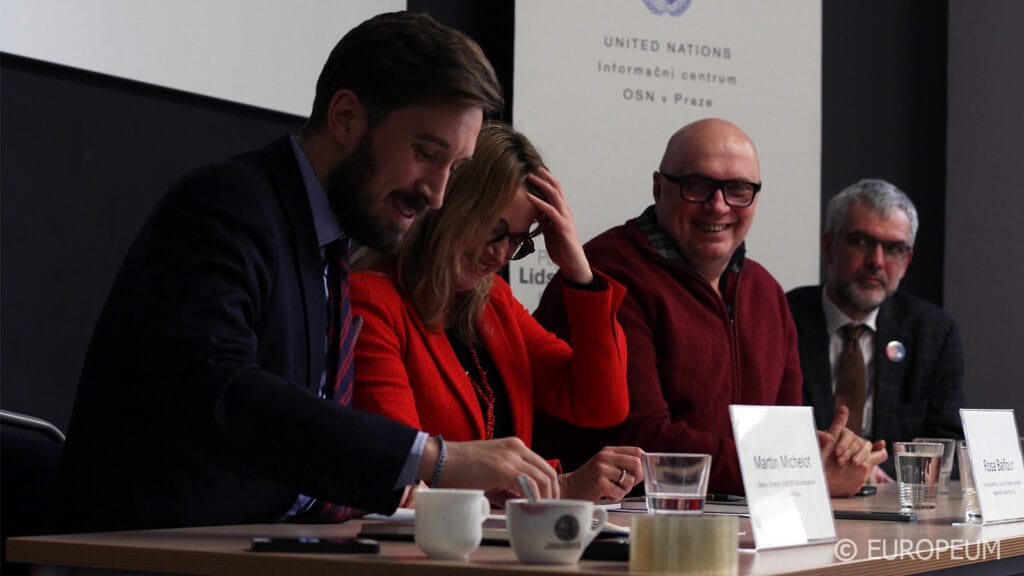REPORT: Why are think tanks more important now than ever before: think tanks in a post-factual world

Our guests Rosa Balfour, Jan Macháček and Jiří Schneider participated in the discussion that was moderated by Martin Michelot.
After the introductory remarks by our Director Vladimír Bartovic and a short presentation of the results by our Martin Michelot, Jan Macháček kicked off the debate by stressing that the
Global Go To Think Tank Index with its rankings reflects the state of the relations between institutions and policy.
Then, he presented a current trend for think tanks in the Czech Republic – that is to adapt the so-called German system, in which think tanks are sponsored by companies linked to the leader of a political party, and political parties channel part of the funding (according to their number of MPs) to the affiliated think tanks. Nonetheless, within such system, Czech think tanks would need to remain independent, open to more opinions and still pursue improvement of the quality of public debates.
I would welcome if think tank policy analysis would be more read and absorbed by MPs and policymakers,
concluded Macháček, expressing his concerns about the possibility that Czech traditional political parties would anyway manipulate the funding for think tanks to be spent on election campaigns.
Jiří Schneider added that the world of think tanks is similar to an ecosystem with many species and therefore very difficult to categorize. Nonetheless, a certain mood is to be felt, which is linked to the fact that there is no such thing as neutral research in social sciences (as by observing we impact what we observe). Moreover, the culture of how to behave towards experts has changed, and there might be no demand for the product of think tanks if politicians are rushing to make decisions without checking facts.
The core assumption of think tanks – that you need knowledge to perform power – is now being challenged,
he added, as nowadays one can hold power without being questioned. Even so, according to Jiří Schneider, we’re not on the verge of a post-factual world, but it is still up to think tanks to communicate knowledge to decision makers.
Rosa Balfour reacted on the role of think tanks in a post-factual world adding that
we need to acknowledge that think tanks have the potential to become agents of change, as they are the transmission belt between knowledge produced by academia and the policy world.
As authors of independent political research, they also need to be transparent. According to her, too much group-think that characterizes policy makers created a model in which people don’t speak truth to power because they want to be ‘invited back’.
Think tanks need to avoid such model and not compromise in quality, as their most important role is speaking truth to power.
Then, she continued by reminding also the importance of connecting with the society: think tanks can help NGOs gain access to the market of ideas and translate their ideas into policy. She then concluded that even if think tanks do not directly represent democracy, they remain a vital component of it.
In summarizing the debate, Jiří Schneider concluded that
we can tackle the question of a post-factual world simply by speaking the truth and being genuine, caring about the society – which for think tanks would be translating what they understand, sharing their education and communicating it to people.
Jiří Macháček reacted on the role of communication by reminding that another challenge for think tanks is to figure out how to translate analysis into something that politicians will read. Rosa Balfour added that
think tanks have the ability to engage in the post-truth debate by sticking to their values and quality,
and Martin Michelot concluded that think tanks should perhaps be more genuine and in touch with the population in their efforts to bring the policy world to the citizens.







